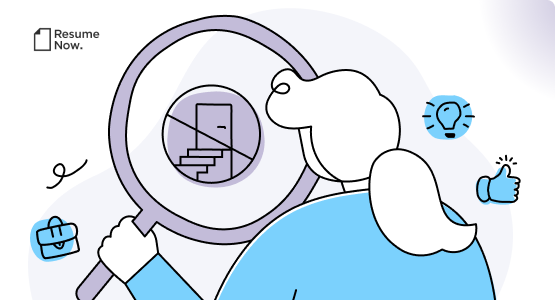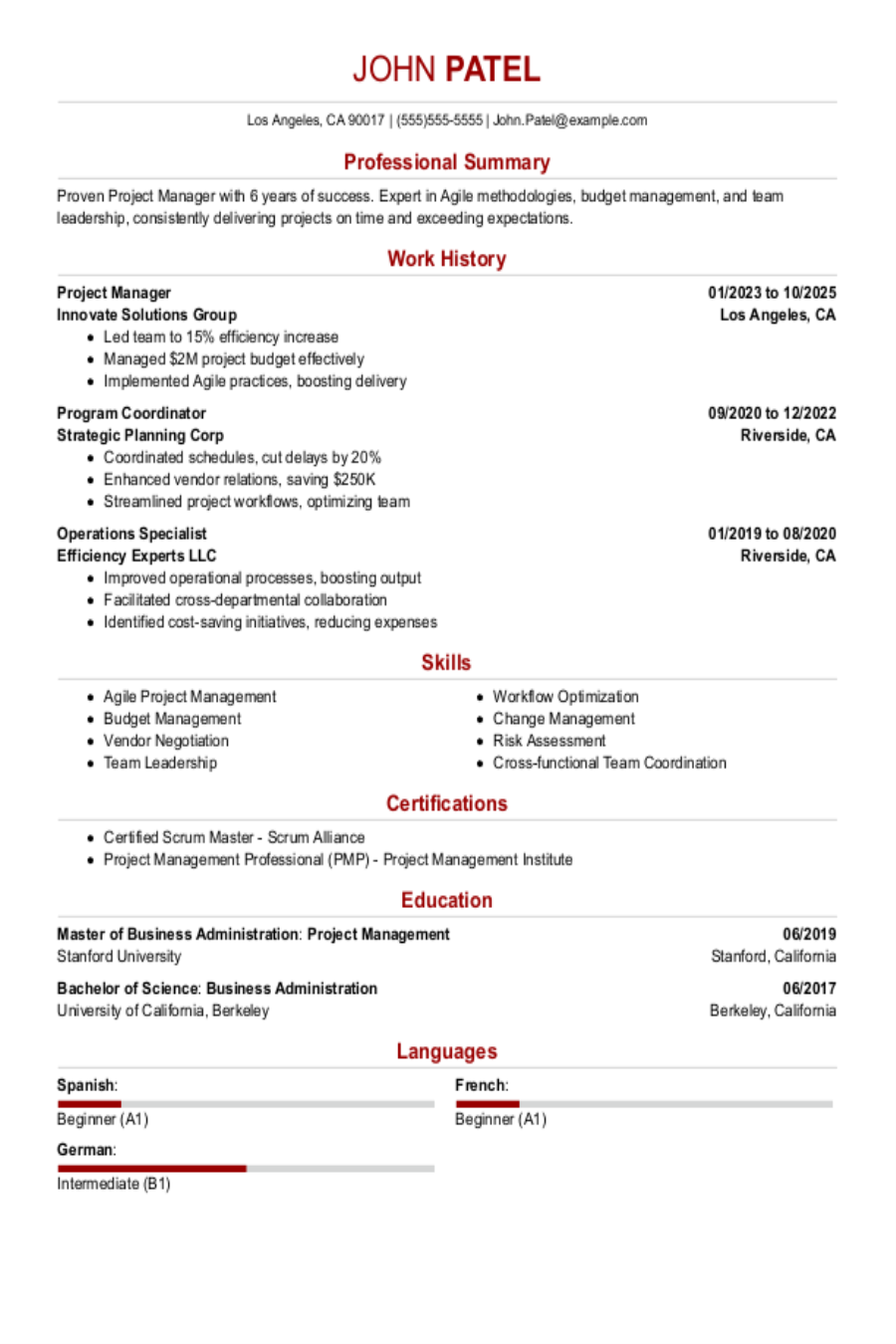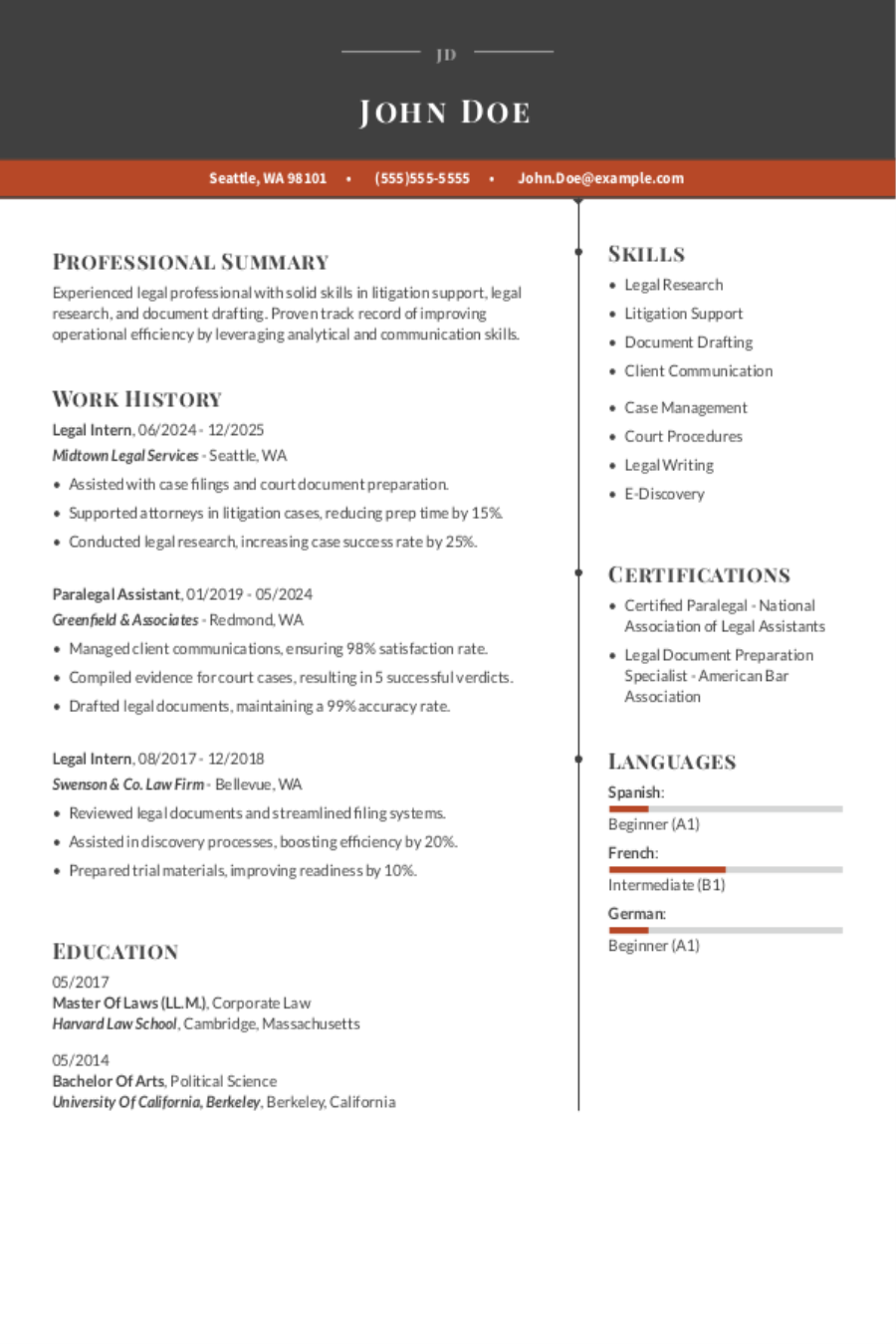No matter your field, industry or career stage, knowing how to tackle the problems that inevitably pop up on the job is a critical skill that helps you roll with the punches and enjoy your work despite the roadblocks, making you a stronger candidate in the eyes of potential employers.
If building a resume sounds like a challenge, you’re not alone. Many job seekers struggle with this step in the job searching process. But, you already have what it takes to create a persuasive job-winning resume! Problem solving skills are just one way that you can make your resume stronger.
In this guide, we’ll help you understand what problem-solving skills are and how they can work for you by providing:
- A problem-solving skills definition so you can visualize the skills that help you find solutions.
- Examples of problem-solving skills to use on your resume.
- Practical tips to help you up your problem-solving game.
- Key takeaways to help you keep track of the important stuff.
Need a resume that you can use to show off your problem-solving skills? Try our AI Resume Builder. This tool helps you relax through the resume process by providing expertly written content suggestions, a huge range of styles and templates to choose from and automatic formatting so you don’t have to sweat the little details. Focus on showing off your skills instead!
What are problem-solving skills and why are they important?
Think back on a workday. It could be any workday. Maybe you were grinding away at a big long-term project, or maybe you were helping a customer find something they needed. It doesn’t matter the job or even the industry, you’ve exercised problem-solving skills to manage your responsibilities.
Problems of all sizes are always part of the workday. You might work through little roadblocks like worn-out equipment or grouchy customers without even noticing you’re doing it! Bigger problems, like a major miscommunication or a significant software bug require a more active problem-solving process.
All of this is to say that problem-solving skills empower you to adapt to changing circumstances, think independently and navigate complex situations.
And there isn’t just one skill that goes into problem-solving, either. Your problem-solving skills are a tapestry of mental abilities and habits woven together with your ability to think critically, act independently, exercise both creative and logical reasoning and remain resilient in the face of uncertainty.
It’s pretty easy to see why employers might look for problem solving skills in resumes, right? Now you just need to learn how to communicate your problem-solving ability on your resume to ensure that your future employer knows they can count on you. We’ll help you do that in the next section with some problem-solving skills examples.
40+ problem solving skills examples for your resume
In this next section, we’ve broken down a long list of resume problem solving skills into categories that will help you understand their role and importance. Let’s dive in!
Analytical skills
Problem-solving is an intellectual game. Employers look for strong problem solvers by evaluating candidates who demonstrate their ability to think critically, investigate issues thoroughly and draw logical conclusions.
Analytical skills for your resume:
- Data analysis
- Logical reasoning
- Research
- Quantitative analysis
- Hypothesis testing
- Statistical analysis
- Critical thinking
- Experimentation
Creative thinking
Creative thinking is at the heart of problem-solving. Sometimes, a bit of inspiration and the willingness to step outside of the box is all it takes to crack open a tough nut of a problem. Show employers that you have a unique way of seeing the world and imagining solutions that no one else can!
Creative thinking skills for your resume:
- Brainstorming
- Innovation
- Curiosity
- Imagination
- Lateral thinking
- Abstract thinking
- Conceptual skills
- Intuitive design
- Ideation
Decision-making skills
Solving problems can involve a lot of uncertainty. But sometimes, the only way out is through. Once you’ve gathered all the information you can and looked at a problem from every angle, the next step can be a bit of a leap of faith. Decision-making skills help you choose a path with confidence.
Decision-making skills for your resume:
- Prioritization
- Risk assessment
- Confidence
- Leadership skills
- Cost-benefit analysis
- Strategic planning
- Scenario planning
- Judgment
Interpersonal skills
Working through issues is very often a team effort, and many of the most challenging problems at work result from ineffective communication. Your interpersonal skills help you communicate with co-workers, gather information and solve problems at the source!
Interpersonal skills for your resume:
- Communication
- Negotiation
- Flexibility
- Conflict resolution
- Collaboration
- Stakeholder engagement
- Empathy
- Active listening
- Resilience
- Resourcefulness
Organizational skills
It’s hard to solve problems when you’re forced to chase down context thanks to disorganized workspaces, thought processes or priorities. Showcase your ability to stay organized and focused to show employers that you can handle complex problems.
Organizational skills for your resume:
- Project management
- Time management
- Resource allocation
- Scheduling
- Workflow optimization
- Delegation
- Goal setting
How to list problem solving skills on your resume
Now that you’ve got an idea of what skills fall under the problem-solving umbrella, you’ve probably realized that you already have plenty of problem-solving skills to show off. Let’s walk through how you can create a resume that puts them to use!
Start by examining the job description
The best resume is always going to be one that’s thoughtfully customized to suit the specific role. Read the job listing carefully and pay attention to keywords that offer clues as to what qualities the hiring manager or recruiter is looking for. These are the specific problem-solving skills phrases that you’ll want to integrate into your resume for the role.
For instance, consider this job listing:
Our ideal candidate for the role of data analyst is someone who can:
- Analyze large quantities of data and communicate findings effectively.
- Demonstrate strong project management skills, including prioritization, scheduling and time management.
- Collaborate with teams across the organization to facilitate the effective implementation of new technologies and strategies.
The bolded keywords highlight a few of the problem-solving skills that a prepared candidate might pay attention to while building a resume for this role.
Adding keywords from the job description doesn’t just help you impress human readers. Many employers screen candidates using applicant tracking systems (ATS). These programs look for preset keywords and will sometimes filter out resumes that lack them. So impress the people and the robots by aligning your resume to the role!
Feature problem-solving skills in your skills section
Your skills section is the first place that probably comes to mind when you start thinking of strategies to showcase your problem-solving skills. This section should be home to both the hard skills that allow you to perform the technical aspects of your role, and the soft skills that help you excel. Adding a few of your most critical problem-solving skills in this section is a great way to show how you excel at them.
Integrate problem-solving skills throughout your resume
Your skills section isn’t the only section that gives you a chance to show off your problem-solving chops. Your work history section lets you do more than list past job responsibilities. This is where you can show how you’ve applied your skills in real-world situations and achieved impressive results.
Consider this example:
Data Analyst
XYZ Corporation, City, State
January 2020 – March 2024
- Conducted comprehensive data analysis on large datasets to identify trends, resulting in a 20% increase in targeted marketing efficiency.
- Managed and optimized workflows for ongoing data projects, ensuring timely delivery and exceeding quality standards.
- Created detailed reports and communicated analytical findings to stakeholders, supporting informed decision-making across departments.
- Utilized project management skills to oversee multiple projects from inception to completion, ensuring alignment with business goals and optimal resource allocation.
Your resume profile is another section that gives you a chance to highlight problem-solving skills. Because this section sits at the top of your document, focus on just a few of the key skills that you want employers to see first.
If you’re a newcomer to your field, consider using a functional resume format. This allows you to focus on skills in lieu of work experience and gives you many more opportunities to reiterate your problem-solving capabilities.
Don’t forget to include problem-solving skills in your cover letter
Your cover letter is an indispensable step in the job search process. A great cover letter lets you dig into the specifics of why your skills and experience make you the best fit for the role. Use your cover letter to draw attention to the problem-solving skills that matter most to you and your prospective employer.
For help getting started, look for cover letter examples that match your career, industry and professional branding. Our Cover Letter Generator can also help get you started by providing automatic formatting, text suggestions and premade designs to help you look professional while standing out from the crowd.
How to improve your problem-solving skills
Improving your problem-solving skills is a great way to level up your professional capabilities and prepare for a job search. Here are some tips to help you get started.
Improve your problem-solving skills by:
Working on prioritization
Everyone loses the forest for the trees sometimes, but if a problem is overwhelming you to the extent that you can no longer see the big picture, Helm360 recommends getting into the habit of breaking problems down into smaller pieces and setting realistic priorities for each bite-sized chunk. Taking little bites out of the most important pieces first will help give you the initial momentum you need to tackle the whole problem.
Starting at the source
Sometimes, the best way to solve a problem is to prevent it before it even happens. Of course, right? But seriously, Cisco’s Networking Academy suggests looking for the root cause of problems to help you both prevent them in the future and gather context so you can understand and solve them better.
Relying on the professionals
If you’re not sure where to get started when it comes to improving your problem-solving skills, try taking an online course. Udemy offers courses designed to help you become a better problem solver in no time.
More skills resources
Looking for help understanding, improving or listing a different career skill? Check out our other guides for help making the most out of your resume skills.
Now, let’s explore some key takeaways to help you remember what’s important!
Key takeaways
List problem solving skills on your resume
Show employers that they can trust you to think critically, analyze situations and develop creative solutions by building a resume that showcases your problem-solving skills.
Demonstrate analytical skills
Solving problems requires logical reasoning and plenty of context. Demonstrate your analytical skills to show that you have what it takes.
Emphasize creativity and collaboration
Problem-solving is often a team effort. Show employers that you can communicate with others and develop innovative solutions to problems by exercising your interpersonal skills.
Highlight decision-making skills
Making hard decisions is often the only way forward. Show employers that you aren’t intimidated by difficult circumstances by showcasing confidence and good judgment on your resume.
Improve your problem-solving skills
Professional development is a never-ending process. Improve your problem-solving skills by practicing prioritization, seeking out the root causes of problems and taking courses from pros to help you become a problem-solving master.
Was this information helpful? Let us know!
Hailey is a career advice writer dedicated to helping job seekers excel in their careers.
More resources

What Are Resume Keywords? A Comprehensive Guide
Is your resume not getting the response you hoped for? Resume ...

Nearly 7 in 10 Workers Say Their Skills Are Underutilized at Work
Resume Now s untapped talent report shows that a growing conti...

Construction Project Manager Resume: Examples & Templates
As a construction project manager your resume must capture th...

Engineering Project Manager Resume: Examples & Templates
As an engineering project manager your resume must capture th...

Legal Intern Resume: Examples & Templates
As a legal intern your resume should highlight essential skil...

